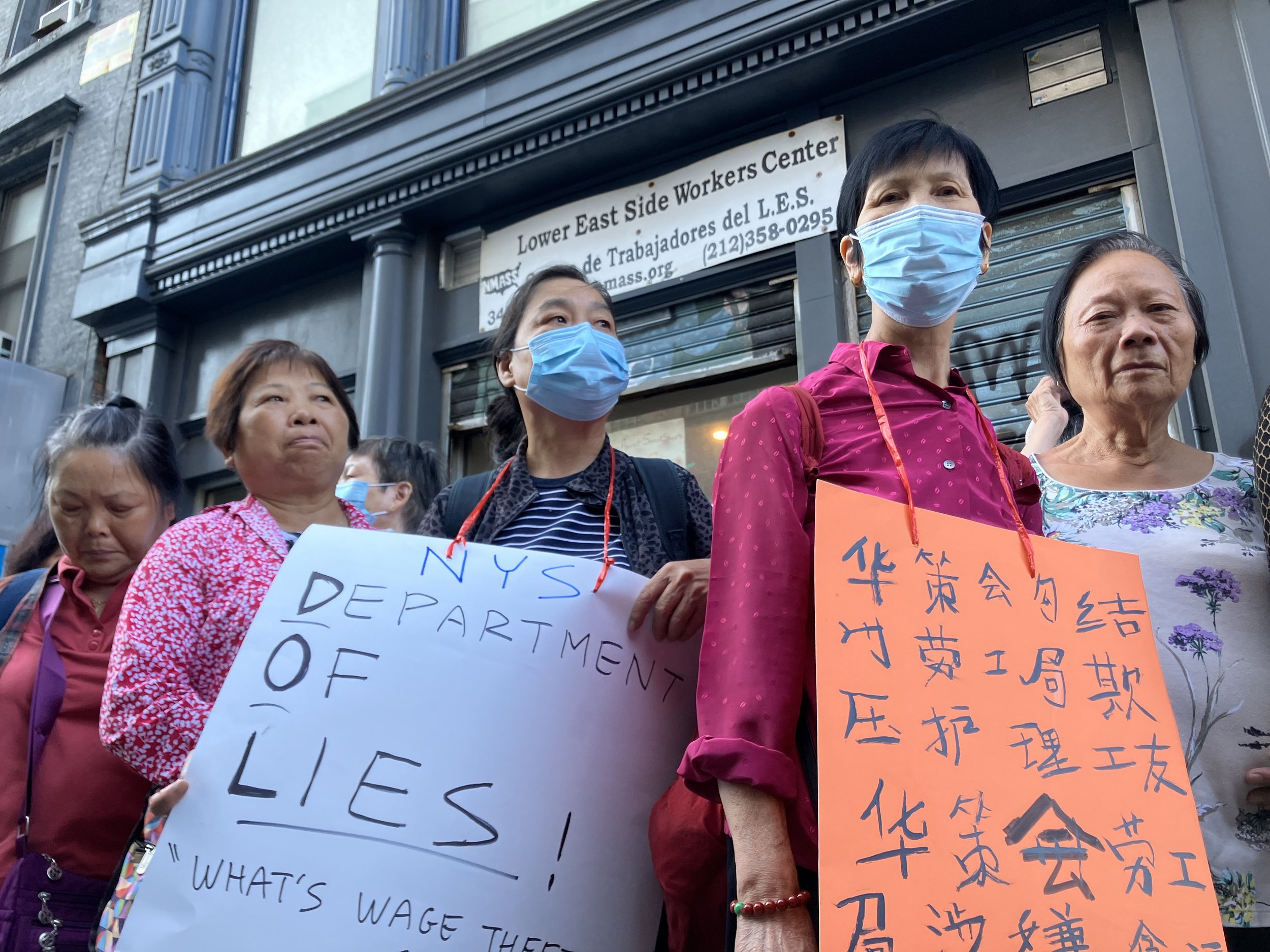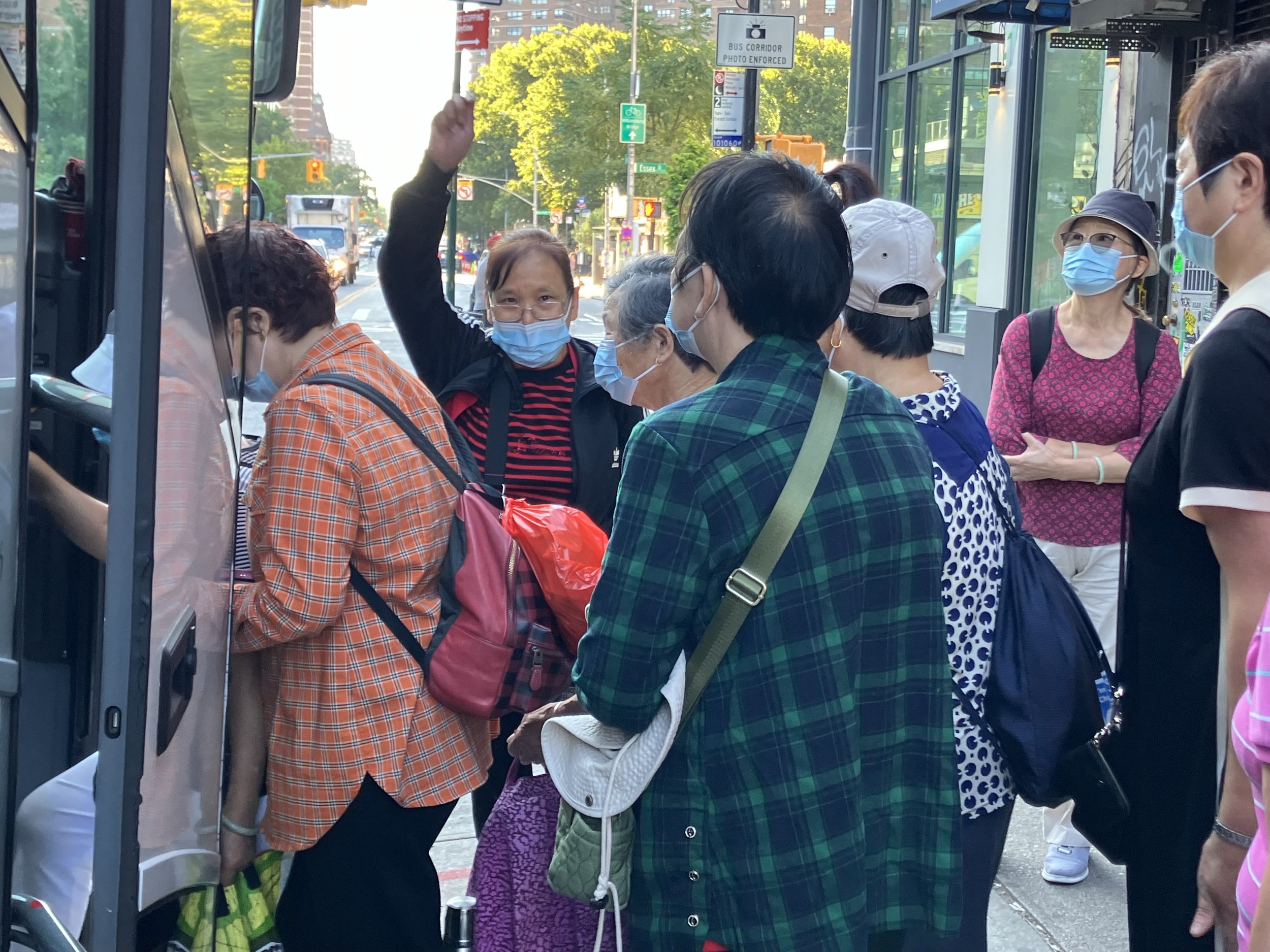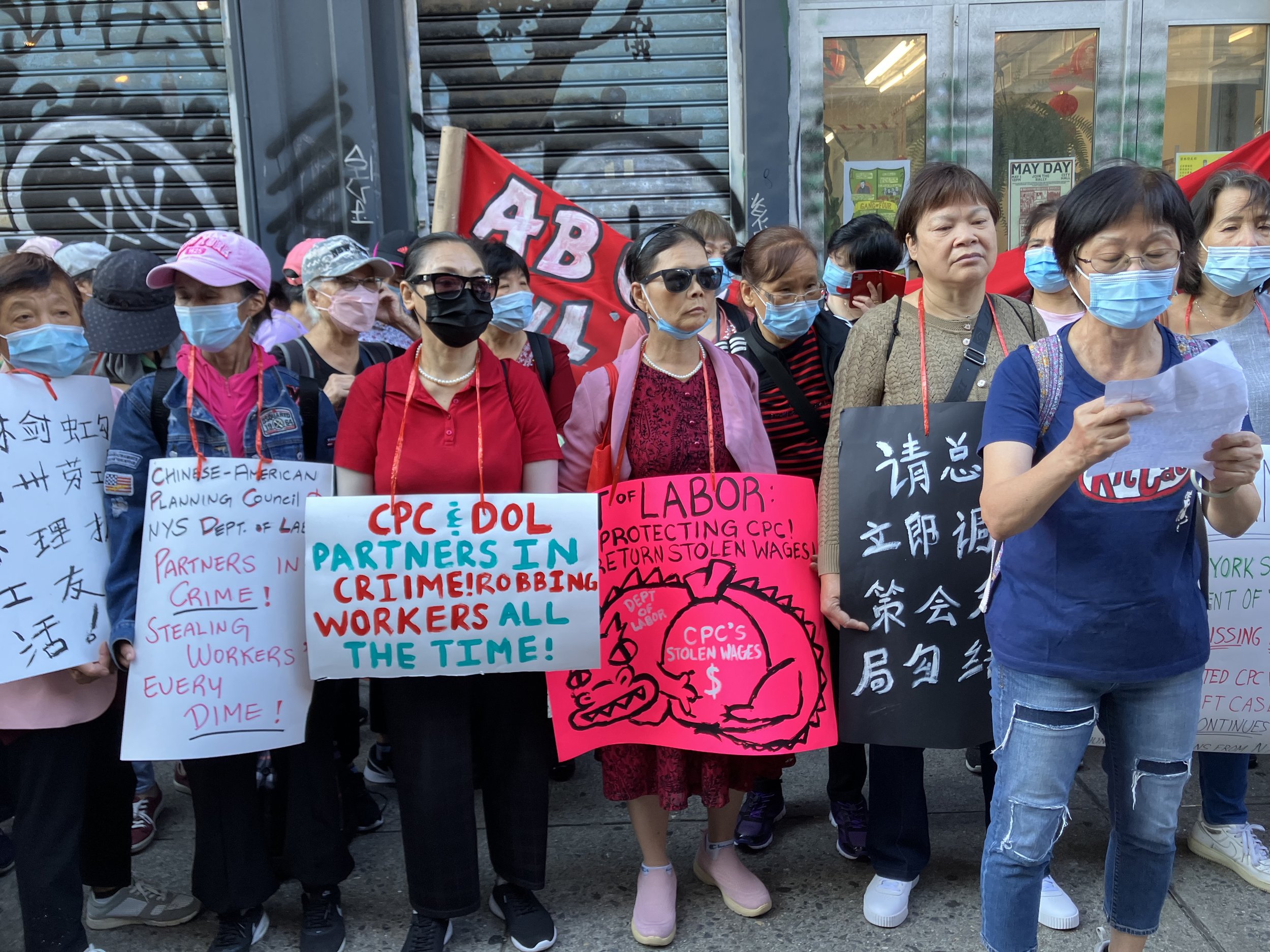Sure, ‘Modern Day Slavery’ in Home Care is Bad—it Still Costs too Much to Abolish it
People keep denouncing the 24-hour shifts older immigrant women of color in New York City's home care industry are forced to endure as "modern day slavery" -- and yet it persists. Photos/Joe Maniscalco
By Joe Maniscalco
Congress Member Yvette D. Clarke [NY-9th District] this week became just the latest high-powered figure to denounce—as modern day slavery—the round-the-clock shifts older immigrant women of color are still being forced to work in New York City’s home care industry.
“It is [modern day slavery],” Congress Member Clarke told Work-Bites on Thursday. “Their work is so critical to every one of us, it’s amazing that we’re still even having this conversation. There’s not a person in this nation that doesn’t understand, if they’re alive, that one day they’re gonna need home care or they’re gonna need the care of our caring economy. We should all be on board to make sure that we bring equity to the work that is being done.”
That doesn’t necessarily mean, however, that the former New York City Council member and eight-term U.S. representative advocates abolishing round-the-clock shifts in NYC’s home care industry, or is in favor of dividing home care worker assignments into 12-hour split shifts.
“I wouldn’t drill down that far on it,” Congress Member Clarke said. “But what I would say is that we are listening to the caregivers. We are concerned about the wages—I am concerned about the wages they have received.”
Home care workers packed Albany-bound buses earlier this month to call on Attorney General Letitia James to investigate the New York State Department of Labor's decision to drop its multi-year probe into wage theft claims.
Under current rules, home care workers doing round-the-clock shifts are only paid for 13 of those hours. It’s been estimated that fully paying home care attendants for the work that they do would require boosting funding through the state Medicaid program by some $645 million annually.
Failing to do that—say critics of finally bringing an end to slavish 24 hour shifts in New York’s home care industry—would give managed care plans and providers a powerful financial incentive to abandon those most in need and move them into nursing homes.
“Whatever [home care workers] believe is the best proposal to make sure that we expand—so that they are not treated as ‘modern day slaves’—that is what I am in favor of—whatever the proposal is to make sure they are given the type of work conditions and type of pay that is commensurate with the work that they do each and every day,” Congress Member Clarke added.
The Brooklyn-born legislator made her remarks at a “Care Can’t Wait” rally held at 1199SEIU’s 7th Avenue headquarters in Manhattan. The national “Care Can’t Wait” campaign seeks a $400 billion investment into Medicaid Home and Community-Based Services, in addition to the passage of child care and family leave legislation.
“We want to make sure that every home care worker gets paid dignified, family-sustaining wages for the work that they do—and for every hour of work that they do,” Ai-Jen Poo, Caring Across Generations executive director and National Domestic Workers Alliance president told Work-Bites at Thursday’s rally. “And we need funding for Medicaid Home and Community-Based Services. We need to fund longterm care in this country because it’s urgent and an important investment that we need to make in our future—including making every one of these jobs a good union job.”
Home care workers who traveled to Albany earlier this month to call on New York State Attorney General Letitia James to investigate the Department of Labor’s [DOL] decision last year to suddenly drop its multi-year investigation into home care worker wage theft claims are union members, however.
They insist the roughly $30 million “Special Wage Fund” that 1199SEIU and other unions representing home care workers helped establish in 2022 doesn’t begin to cover what they’re actually owed. In some cases, home care workers say that money runs into hundreds of thousands of dollars in unpaid wages.
The unions helped establish the “Special Wage Fund” after consolidating wage theft claims against 42 different home care agencies into a single arbitration case.
Home care worker advocates with the Ain’t I a Woman Campaign charge one of those home care agencies—the Chinese-American Planning Council [CPC]—with colluding with the Labor Department in the successful effort to squash the state’s multi-year wage theft probe last year.
Home care workers subjected to slavish 24-hour shifts charge the Chinese-American Planning Council with colluding with the DOL to squash its multi-year investigation into wage theft claims.
Former CPC Council Board Chair Jenny Low served as Governor Kathy Hochul’s Chief of Constituency Affairs from November 2022 to January of this year. While at that post, home care worker advocates say Low “exerted undue influence on the NYSDOL’s decisions” and ultimately paved the way for the “cessation of investigations into workers’ cases without charges.”
Attorneys for home care workers are still in court fighting the DOL’s decision to pull the plug on those investigations into wage theft.
The CPC denies charges of collusion, however.
“In June 2022, the DOL put their investigation into the claims against CPCHAP [Chinese-American Planning Council Home Attendant Program] on hold because of the settlement determined by the arbitrator and confirmed by the federal court earlier that year,” a CPC spokesperson told Work-Bites in an email. “Former board member Jenny Low joined the Governor’s Office in November 2022, several months after the DOL already made its decision to follow its longstanding policy of not pursuing claims subject to collective bargaining.”
The organization touts itself as the largest Asian American social services organization in the country—and further argues that the DOL continues to investigate the one claim not subject to the arbitration process—the claim of retaliation—and that is “proof that the Chinese-American Planning Council and our subsidiary, the Chinese-American Planning Council Home Attendant Program, do not exert any undue influence.”
That’s something of a revelation—the DOL declined to comment citing “pending litigation” when Work-Bites last inquired about the status of any wage theft claims by home care workers the state might still be investigating.
The CPC further insists it does not retaliate against workers, and that fact is evidenced by “the continued employment of home care workers who are pressing CPCHAP.”
“What CPC is now claiming, as it scrambles to defend itself, only further exposes CPC and the DOL’s corruption,” a spokesperson for the Ain’t I a Woman Campaign told Work-Bites in response. “The DOL investigation of CPC was ongoing until it was dismissed in May 2023, months after Jenny Low assumed her position. Workers did not receive any notice about their wage theft cases being ‘on hold.’ In fact, CPC’s response only raises the question of why CPC, the employer which hundreds of workers filed complaints against, was told details about the DOL investigation that even the claimants do not know.”
The Ain’t I a Woman Campaign maintains the “CPC knows very well that the DOL investigates union workers’ claims because CPC was investigated and had to pay back $2 million in 2014 because it failed to pay workers legal wages in the past. This is precisely why workers had to make a 3-hour trip to Albany to blow the whistle on corruption: because the DOL allows CPC to illegally keep receiving public funds despite chronically committing wage theft in our community.”
The Ain’t I a Woman Campaign also disputes CPC claims that it does not retaliate against home care workers pressing wage theft claims—citing the case of a CPC home care worker named Gui Zhu Chen as evidence .
“Gui Zhu Chen is one of the many workers that CPC retaliated against,” the Ain’t I a Woman spokesperson further told Work-Bites. “She worked 24-hour workdays and was paid for only 13 hours. For several months, she recorded all of the work she did caring for the patient throughout the day and night and asked CPC for payment. CPC accused her of lying and threatened to send her to jail if she continued to report her work—we call on the Attorney General to investigate CPC and DOL to prevent further corruption and abuse of immigrant women.”
Ms. Chen worked with CPCHAP from March 2013 until her retirement in December 2020, according to the CPC, and was a member of 1199SEIU.
“No union grievances alleging retaliation were filed by Ms. Chen or any other employee,” a spokesperson from the organization told Work-Bites. “When claims were filed against CPCHAP, Ms. Chen declined to participate in an internal review conducted by our legal department, even with her counsel present.”
The CPC spokesperson further denied charges the organization retaliates against employees for “reporting or for making requests or demands about their work, or for declining any particular case based on the Medicaid authorized hours.”
“We are committed to treating all employees with respect, fairly and in full compliance with labor and Medicaid regulations,” the spokesperson added. “Like all organizations receiving Medicaid funding, we are required to conduct annual trainings on Medicaid fraud, waste, and abuse prevention and ramifications, as well as our own policies, to ensure compliance with Federal, State, and City regulations. Our commitment to transparency and open and frank communication with our employees remains a top priority.”
Editor’s Note: This story has been updated to include the CPC’s comment regarding Gui Zhu Chen.



